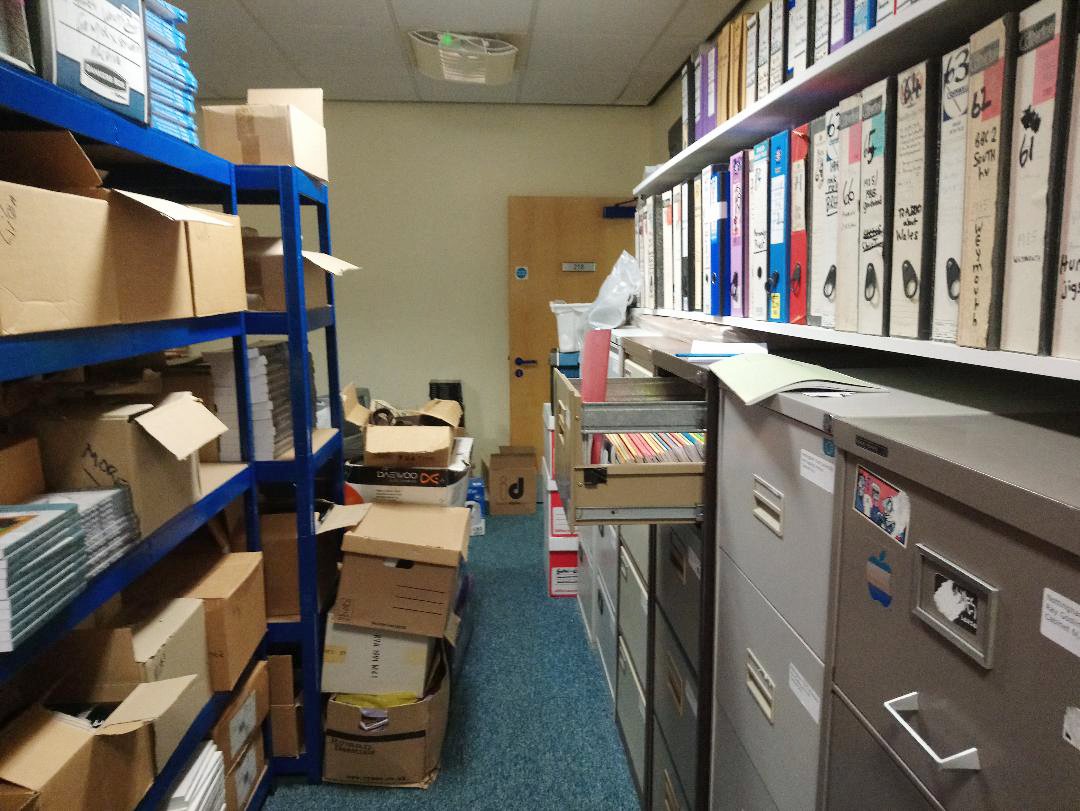Visiting the Ray Gosling Archive
I recently paid a visit to Trent University Nottingham to check through some of the contents of the Ray Gosling Archive. If you don’t recognise that name, Ray was a broadcaster and journalist whose career imploded in 2010 after confessing on a BBC regional TV programme to having mercy-killed, many years before, a lover who was in hospital dying of AIDS. For a while the story made headlines worldwide until Ray confessed to the police that he hadn’t been telling the truth: he wasn’t even in the country when the young man died. Ray was charged instead with wasting police time. He never worked again.
Subsequently, Ray died, aged 73, in November 2013. Shortly afterwards, I recovered from Ray’s rented room in Manchester a series of 30 A4-sized notebooks used by him as diaries during the time of the controversy. They throw much new light on his state of mind and the background events in his life at the time. They’re a small part of a huge number of notebooks he kept until his death, the rest of which are all tightly packed inside filing cabinets at the archive in Nottingham. This is where I wanted to find more details for what is shaping up to be the first biography of Ray. There is certainly no shortage of material, that much is obvious.
But what questions could I answer by doing this? Will it be possible to find out why Ray told a lie on TV and sabotaged his own future? Well, yes, but there is much to the story than this terrible low point. And I don’t think the story will be simple.
Ray was a complicated character, to say the least. He was defiantly provincial in his origins and outlook, and as a youth was a teddy boy in Northampton, later promoting rock and roll bands in a chaotic youth club in Leicester. But he got through to the heart of the British establishment by publishing an extraordinary autobiography with Faber & Faber at the age of 22 with the support of the publisher’s head, T.S. Eliot. For years, however, Ray had also made money as a rent boy in London. He championed homosexuality and worked for many years to legalise it, but he refused to call himself gay. He loved the Midlands and led a long campaign against a massive housing redevelopment scheme in the St Ann’s district of Nottingham. But his own life was one of restlessness, and an extremely casual attitude to debt and borrowing. He was part of the British New Left, discovered and befriended by the Jamaican academic Stuart Hall, but he voted for Margaret Thatcher in 1979 and regretted it. As a teenager I remember first seeing Ray presenting Granada’s weekly On Site programme, where discontented people around the region took on staid, self-satisfied local councillors, landlords and company bosses in a kind of televised class war, yet Ray was equally at home making programmes about garden gnomes or cafes.
As his producer for BBC radio for many years, I can testify that he was frequently stopped in the street by ordinary people who admired him, yet behind the scenes at the Beeb and at Granada I was constantly being told he was “trouble”. He was anything but perfect. All of which are just a few reasons enough to write about him, and no doubt open up a few arguments about the British media, sex, class, the ageing process, money, alcohol and what it is to be a writer.
Thanks to Colin Haynes access to Ray’s archive and much interesting conversation.

